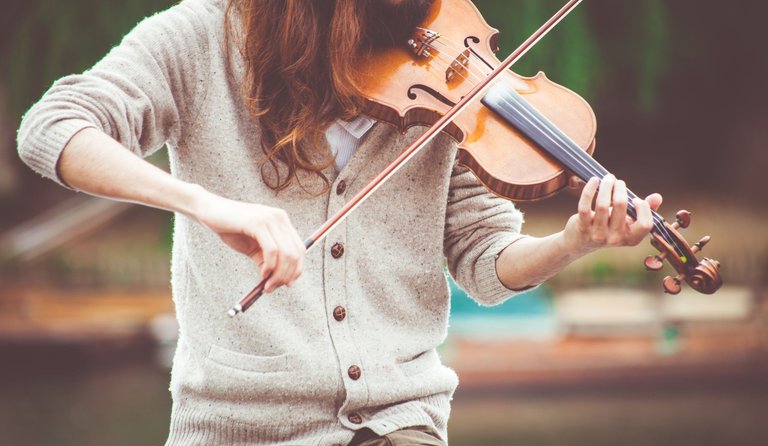Playing a violin can actually regulate your mood- this is how it works
Wow, it's pretty amazing how playing the violin can actually regulate our mood, don't you think? Let's dive into this super intriguing topic and explore the fascinating connection between violin playing and our emotional state. Imagine this: you're in a calm room, gently holding your violin, getting ready to create some magical music. As you slowly glide the bow across the strings, a beautiful melody fills the air, and all of a sudden, a sense of tranquility washes over you. It's almost like the violin has this mystical power to control our moods. But is there any truth to this idea, or is it just wishful thinking? Well, let's find out!

When we listen to music, we all know it can deeply affect our emotions. It can transport us to different places, bring back memories, and even change our moods. But did you know that playing an instrument can have equally remarkable benefits? It's not just about passively listening; actively playing an instrument can also have a profound impact.
One of the main reasons why playing the violin helps with emotional regulation is the intense focus and concentration it requires. When we engage in a challenging activity that demands our complete attention, it takes our minds off repetitive and negative thoughts, allowing us to direct our energy into something productive. Whether you've been playing the violin for years or you're just starting out, the concentrated practice and discipline involved provide a welcome escape from the chaos of everyday life.
Furthermore, playing the violin stimulates our brains in a unique way. Studies have shown that playing a musical instrument, especially a complex one like the violin, activates multiple regions of the brain simultaneously. This harmonious brain activity can trigger the release of endorphins, dopamine, and serotonin – the chemicals responsible for feelings of happiness and well-being. So, when we play the violin, it's no wonder that we often experience an uplift in our mood.
And let's not forget the cathartic nature of physically playing the violin. Similar to any form of exercise, playing the violin involves the coordination of fine motor skills and the proper technique. As we navigate the fingerboard, glide the bow across the strings, and immerse ourselves in the beautiful sound we create, we release tension and pent-up emotions. It's almost like the violin becomes an emotional outlet, allowing us to express ourselves and find solace in the music we produce.
Beyond the technical and physiological aspects, playing the violin also provides a sense of achievement and self-assurance. As we progress in our musical journey, conquering challenging pieces or performing in front of others boosts our self-esteem and reminds us of our own capabilities. This newfound confidence can extend beyond music, aiding us in handling difficult situations and effectively managing our emotions.
Alright, let's talk about the big issue here: what if playing the violin doesn't actually make us feel any better? Well, we have to recognize that not everyone will have the same experience when it comes to finding solace or emotional regulation through playing the violin. Your musical preferences, personal background, and unique differences all play a big part in how much the violin can help regulate your mood. The key is to find the right instrument and form of artistic expression that truly resonates with who you are.
Ultimately, whether the violin becomes your personal mood regulator or not, the true beauty lies in the process of creating something with passion. Music has this incredible ability to change our perspective, bring peace to our souls, and transport us to a world where emotions blend harmoniously. So, if you've ever felt a pull towards trying out the violin, go ahead and give it a shot. You never know, you might just discover a whole new realm of emotional balance and regulation through the enchanting strings of that magical instrument.
References
- https://www.google.com/amp/s/neurosciencenews.com/sad-music-psychology-4472/amp/
- https://www.sciencedirect.com/science/article/pii/S1571064513000638
- https://www.ncbi.nlm.nih.gov/pmc/articles/PMC8397231/
- https://theviolinchannel.com/study-finds-sad-music-improves-mood-mindset-berlin/
- https://www.academia.edu/4354677/The_Impact_of_Reverb_on_a_Violin_Player_s_Mood_in_the_Practice_room
- https://www.researchgate.net/figure/Violin-plot-of-global-measures-in-five-emotions-a-In-each-emotion-each-colored-point_fig2_340269936


Dear @jsalvage !
Music can cure illness!
Yes, this is true 🙏
Thanks for your contribution to the STEMsocial community. Feel free to join us on discord to get to know the rest of us!
Please consider delegating to the @stemsocial account (85% of the curation rewards are returned).
You may also include @stemsocial as a beneficiary of the rewards of this post to get a stronger support.